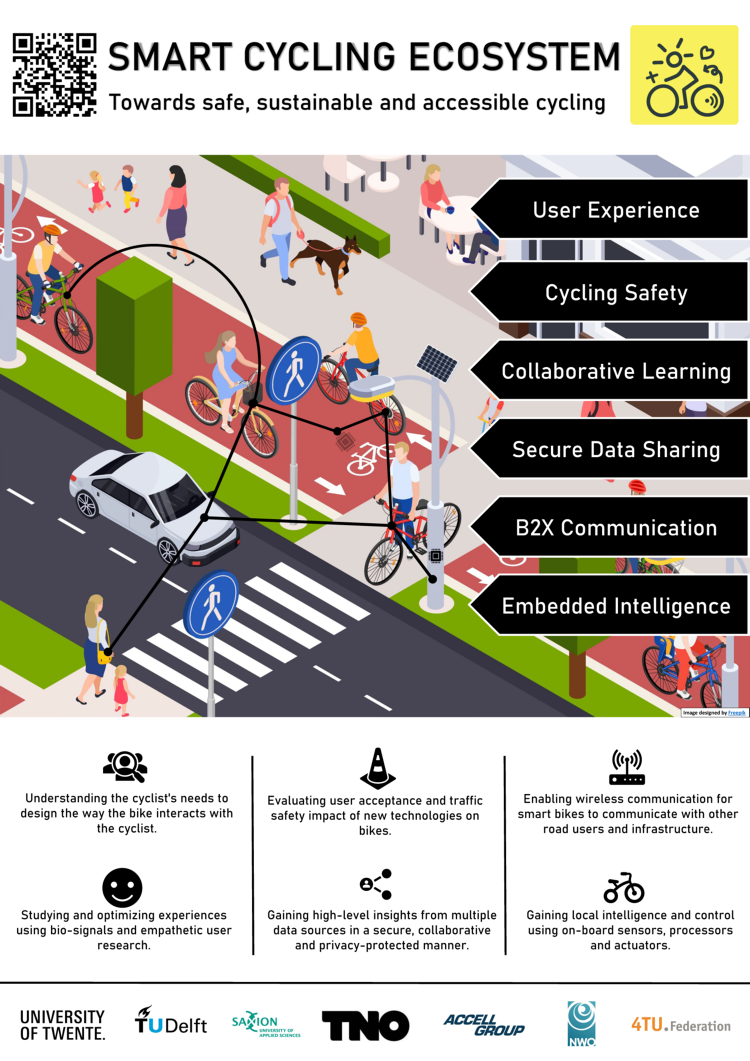The Smart Connected Bikes Research and Innovation programme aims to develop and test a novel connected vehicles ecosystem which combines the capabilities of sensing, wireless technology and data science to make bicycle transportation more safe, reliable, and comfortable.
Cycling is popular in the Netherlands and still growing in popularity. In the past years record high number of e-bikes were sold in the Netherlands. The growing popularity of e-bikes has many advantages but at the same time the number of traffic accidents with cyclists have grown steadily in the past ten years. At the same time new business concepts are emerging. The digital revolution and the influx of new technologies and materials will change the appearance, function, and role of bicycles and E-bikes. E-bikes with integrated sensors and intelligence could give rise to many new opportunities, increased user experience, safety and better quality. Accell-Group sees the bicycle as an essential part of a mobility- and energy-transition in progress and sees the need to connect the bicycle to infrastructure and other modes of transport to shape new forms of mobility. Given this background, Accell Group started a five year collaboration with the University of Twente (UT) at the end of 2019. The collaboration resulted in two full-time four-year PhD positions. An additional grant from the Smart Industry programme of the Dutch Research Council (NWO) provided additional funding to expand the research.
The Smart Connected Bikes programme has different steps which are closely linked. All PhD projects start with step 1, a review and scoping phase, in which also detailed research proposals are written. Step 2 is the design and development of several innovative parts of the Smart Connected Bike programme. This involves the development of a multi-party data sharing platform (considering privacy and data sovereignty), embedded intelligence, vehicle to infrastructure communications and digital twins. Furthermore, the user experience and traffic safety impacts of smart connected bikes will be examined. Testing of Smart Connected Bike prototypes (step 3) to examine how digital innovation can improve traffic safety and cycling experience will be conducted in field trials with end users in different Dutch cities. All components of the Smart Connected Bike platform will be thoroughly evaluated (step 4). The results from all steps will be shared and discussed in project meetings, stakeholder meetings, workshops and conferences (step 5).
